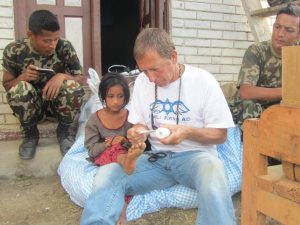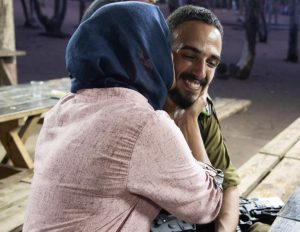Peace, Justice and Strong Institutions


Home » Peace, Justice and Strong Institutions » SDG 16-National-Civic Service – NGOs on the Ground
SDG 16-National-Civic Service – NGOs on the Ground
The first part of this series focused on the role of Israel’s Authority for National-Civic Service, both in fighting the coronavirus and in pre-crisis times. Clearly, this effort would be infinitely more challenging if not for the heavy lifting on the ground carried out by civil society organizations and their volunteers.
With about 5,000 participants (ages 17-24), the Israeli Volunteer Association (IVA) is the largest of a number of NGOs operating in the country’s National-Civic Service space. Reflecting its vision of closing gaps and strengthening citizens’ sense of belonging, IVA’s volunteering options – from official institutions to non-profits – contribute to social impact efforts in Israel and are tailor-made for relevant target groups: the Jewish population, Arab community, young people with special needs and at-risk youth.
In a recent op-ed entitled “The Corona crisis is an Opportunity for the National Civil Service,” CEO Yaron Lutz expresses his belief both in the framework’s potential to deal with the pandemic as well as IVA’s contribution to societal cohesion.
“In fact, the Corona crisis highlighted above all the need for partnership between all parts of Israeli society, as the virus does not distinguish between religions, origins or worldviews,” Lutz writes. “And facing it were people from all sections of the Israeli mosaic, with a shared purpose, volunteers from Tel Aviv, Bnei Brak, Rahat and Yafa an-Naseriyye.”


Another Israeli organization active in National-Civic Service placement is “Shlomit,” with about 3,500 participants. Like IVA, “Shlomit” seeks to promote good citizenship in Israel’s multi-cultural reality and strives toward pluralism among its ranks; indeed, it was the first NGO to facilitate civilian service for the Arab and Druze communities (as well as for young men).
Similar to IVA, the organization offers volunteering options relevant to social impact. These include assistance to the elderly as well as service in hospitals and Magen David Adom (Israel’s recognized national Emergency Medical Service organization).
The “Carmel 6000” social-tech program is unique among the various bodies that partner on National-Civic Service in Israel. A joint initiative of “Hilma-Tech for Impact” and the “Amit” educational network, participants in this two-year framework engage in the development of technological solutions in the areas of health, education and welfare with a focus on vulnerable populations and people with disabilities.
Considered a pioneer program that recruits young women who excel in math, physics and English, “Carmel 6000” promotes itself as “National-Civic Service’s 8200 (elite IDF tech unit – SII).”
These and other Israeli frameworks are key to the country’s efforts promoting SDG 10 (Reduced Equalities) and SDG 16, through National-Civic Service activity.
Related articles


SDG 16-Risking Lives to Save Lives – Israel Flying Aid
Peace, Justice and Strong Institutions Gal Lusky is an Israeli mom with a full-time job out of the home. That is one way of describing


SDG 16 – United Together
Peace, Justice and Strong Institutions Israel’s Social Equality Minister couldn’t have been clearer: “The Arab population has shown much solidarity and responsibility.” We’ve written extensively here


SDG 16 – A Sense of Belonging
Peace, Justice and Strong Institutions Perhaps not what would have been expected in wartime, but there you have it: feelings of identification with Israel among its


















